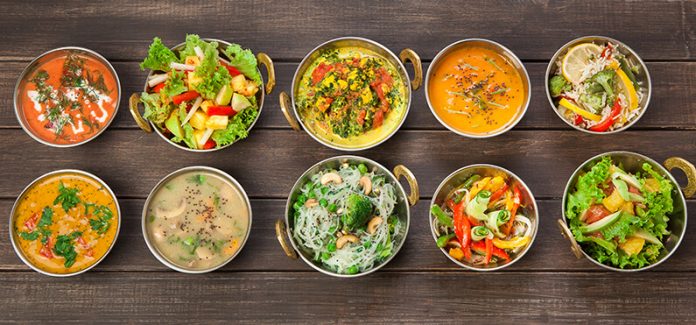Ayurveda is an ancient sister science of Yoga, originating from India. It’s a form of holistic medicine focused on promoting a balance between your mind and body.
According to Ayurveda, five elements make up the universe — vayu (air), jala (water), akash (space), teja (fire), and prithvi (earth).These elements are believed to form three different doshas, which are defined as types of energy that circulate within your body. Each dosha is responsible for specific physiological functions.
Although the Ayurvedic diet has specific guidelines for each dosha, the diet as a whole encourages eating whole foods like fruits, vegetables, grains, and legumes.
This can benefit your health greatly, as these foods are rich in many essential nutrients.The diet also minimizes processed foods, which often lack fiber and important vitamins and minerals.
Studies show that eating higher amounts of processed foods may be associated with a higher risk of heart disease, cancer, and even death. Thus, the Ayurvedic diet may help protect against chronic disease and promote better health. However, more studies are needed.
The Ayurvedic diet is a type of eating plan that sets guidelines for when, how, and what you should eat based on your dosha, or body type.
According to this diet, your dosha determines which foods you should eat to promote inner balance.
For example, the pitta dosha focuses on cooling, energizing foods and limits spices, nuts, and seeds.
Meanwhile, the vata dosha favors warm, moist, and grounding foods while restricting dried fruits, bitter herbs, and raw veggies.
Finally, the kapha dosha limits heavy foods like nuts, seeds, and oils in favor of fruits, veggies, and legumes.
Red meat, artificial sweeteners, and processed ingredients are limited for all three doshas. Instead, the Ayurvedic diet encourages eating healthy whole foods.
Namaste!
Neelanjana Bharadwaj
Yoga Expert
neel_bharadwaj@yahoo.com
Instagram: – yoga_me_and_more

